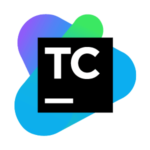Atlassian Bamboo
Atlassian Bamboo is a continuous integration system that manages the entire software release cycle from build to deploy. It includes functionality to automate development workflows and features tight integration with other Atlassian tools like Jira, BitBucket, and Opsgenie.
How does it work?
Atlassian Bamboo helps you implement continuous integration into your development workflow. Continuous integration benefits your team by organizing code commits from your developers into a single system that builds and runs automated test suites to ensure that each release is stable. An end-to-end continuous integration pipeline also includes support for automated deployments, deployment monitoring, fallback, and post-deployment analysis.
Atlassian Bamboo history
Atlassian released Bamboo in 2007. Version 2 soon followed with the capability to run distributed builds. Version 3, released in 2011, included Git support and an improved user interface. Version 4 was released in 2012 and brought support for automatic build branches to the product. Version 5 included more integration with Atlassian products, while version 6 allowed DevOps teams to use configuration as code and included built-in support for pull requests. Version 7 included more user interface improvements and enhanced plan branch support.
The latest stable version of Bamboo is 8.0, released in July of 2021, adopts a focus toward datacenter and enterprise features like build resilience, credential encryption, and a platform update to Java 11.
You should be aware that Atlassian has announced end-of-life support for the Bamboo server edition as of February 2nd, 2024. Atlassian recommends customers migrate to their Datacenter line of products, including Bamboo, to continue using their software. Currently, the Atlassian website encourages new customers to buy the Datacenter edition, thus avoiding the sunset date. If you have an existing Bamboo server installation, you should consider migration before product support ends. Atlassian Datacenter offerings provide high-availability features and increased performance for demanding workloads–allowing you to add users and capacity without downtime.
Try it now
Get Free LicenseAtlassian Bamboo Integrations
Bamboo enjoys deep integration with other Atlassian products, including BitBucket, Jira, HipChat, Confluence, Fisheye, Clover, and Opsgenie. Users benefit from incredible synergy between the entire Atlassian line, allowing you to easily tie in continuous integration and delivery into your existing development workflow.
It also integrates well with outside products like Docker and AWS CodeDeploy. It also exposes a REST API that can be used to provide further customization and automation within your organization’s continuous integration pipeline.
While Bamboo supports Amazon Web Services, unfortunately, as of Q2 of 2021, Bamboo does not directly support Azure or Google Cloud Platform via an integration. Since Azure works with PowerShell, a script task in Bamboo can be used to deploy assets in the Azure cloud. Though GCP isn’t directly supported, there are third-party Atlassian marketplace solutions for Kubernetes.
If your provider isn’t supported in Bamboo, there is a solution. Unsupported platforms like Digital Ocean, Linode, bare metal, and others can be automated via custom script tasks if there is SSH or API access.
Online vs. On-premises Deployment
As of this writing in 2021, Atlassian offers on-premises deployment and cloud-based images. Unfortunately, it doesn’t have a fully managed software as a service offering, unlike Azure DevOps, GitLab, or CircleCI, so you’ll have to host Bamboo on your own servers or cloud providers. Nevertheless, customers of Bamboo enjoy full support from Atlassian.
You can install Atlassian Bamboo on Linux, macOS, and Windows on any x86_64-based system. Bamboo 8, the most current release, requires Oracle Java 11 or OpenJDK 1.8 and a relational database like MySQL, PostgreSQL, Microsoft SQL, or Oracle.
Atlassian Bamboo Alternatives
Atlassian Bamboo vs. Jenkins
Atlassian Bamboo and Jenkins offer similar functionality. The key differences are in the design approach, licensing, and intended use scenarios.
Atlassian Bamboo offers a complete end-to-end solution with deep connections to the Atlassian ecosystem. It’s a commercial product that is priced per user/agent.
Jenkins is open-source software that integrates with other software with a wide array of plugins. Jenkins also offers more customization and thus supports more complex build scenarios than Bamboo.
Organizations that need fully managed support in a SaaS-like environment for Jenkins will find many providers that host Jenkins for them. However, since there is no central organization that hosts Jenkins, quality and features will vary.
Bottom Line
If your organization is heavily invested in Atlassian products and doesn’t require an overly configurable continuous integration system, Atlassian Bamboo may fit the bill.
Get Free License




